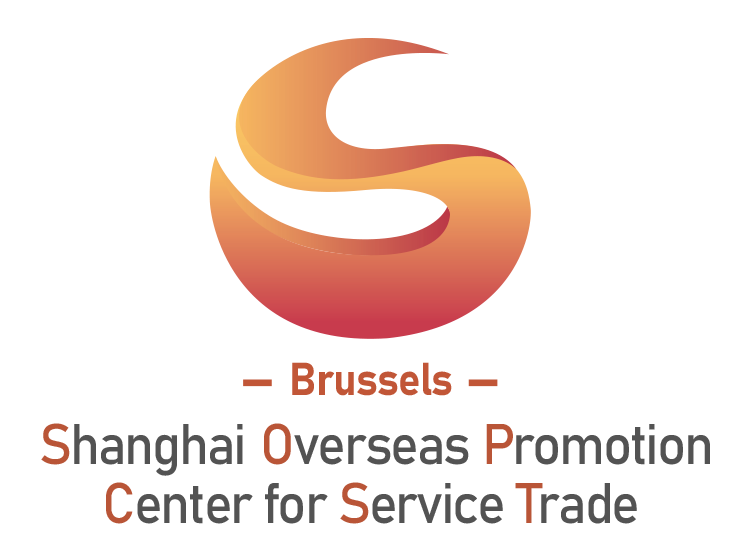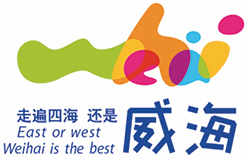Final preparations made for 10th China Flower Expo in Chongming (Shanghai)
May-11-2021 By : fcccadmin
The 10th China Flower Expo that will be held on Shanghai’s Chongming Island is entering the final stage of preparation, with several rounds of stress tests set to take place in May, according to local authorities. Chen Qun, Deputy Director of the Expo’s Management Department, said that the construction of outdoor gardens and indoor exhibition venues is scheduled to be completed by mid-May. “It will be the first expo to be hosted on an island, in the countryside and surrounded by forests,” said Chen. The first edition of the expo was held in Beijing in 1987. The host venue is rotated among other cities every four years. The expo, which will span 10 square kilometers, will take place on the island from May 21 to July 2. It will comprise a core flower exhibition zone with a record high 180 outdoor gardens and two service zones. The expo’s official flower is the peony, which symbolizes wealth and good fortune.
Tourists will get to see over 1,000 types of flowers including magnolia, Chinese plums, and chrysanthemums. “One of the highlights would be the largest outdoor orchid park in China that measures 30,000 sq m. The park will feature 300 kinds of orchids from around the world,” said Ren Yuanbin, Deputy Chief Engineer of the Chongming Ecotourism Group. Rare flowers such as green chrysanthemum and the world’s smallest water lily will be exhibited as well, Ren added. At the Hongqiao Flower Village in Jianshe town of Chongming, three new tulip varieties that were cultivated in the Netherlands are being stored in the village now as a gift for the expo, according to Jiang Yong, Chairman of Shanghai Aalsmeer Horticulture, which manages the village. The village is a vital part of the China-Dutch tulips industrial base launched by the district government of Chongming in 2019. On April 10, Shanghai released six tourism routes themed around the expo. Among them are a tour package combining entry to the flower expo with a cruise tour on the Huangpu river, an outdoor cycling route covering multiple scenic spots on Chongming island, and a route featuring local cultural activities. The city will offer shuttle services that connect the expo to downtown areas.
Chongming has been promoting its flower industry for years as part of Shanghai’s master plan to transform the island into a world-class ecological zone by 2035. As of 2020, the total area planted with commercial flowers on the island was 18.67 sq km, generating a total output of more than 32 million flowers and annual sales of over CNY100 million. Chongming has introduced eight leading enterprises to build a complete industry chain covering flower R&D, production and trading, with a total investment of nearly CNY2.5 billion. The Hongqiao flower village has an area for flower cultivation of nearly 8,000 sq m and a flower theme park. All tulips in the village are imported from the Netherlands. Greenhouses and flower workshops are also under construction, the China Daily reports.
Chinese EV maker Nio to start selling cars in Norway
By : fcccadmin
Chinese electric vehicle (EV) maker Nio announced plans to sell cars in Norway, its first overseas destination. Nio is one of China’s most prominent EV start-ups and is considered a strong competitor to Tesla. Nio will start delivering its electric sport utility vehicle ES8 in Norway from September, while the sedan ET7 will be launched in 2022, said Nio CEO Li Bin at a press conference in Shanghai. Other Nio models will also enter Norway later. Nio has not set any sales target in Norway for the time being. Li said that Norway’s market is “neither too large nor too small”, which the company considered an appropriate choice for its first overseas sales. Moreover, Norway has EV-friendly policies. Nio plans to start selling cars in five European countries next year, and is also considering tackling the U.S. market.
Nio is among a number of Chinese EV upstarts that are seeking to sell cars overseas. Last year, Chinese electric car maker Xpeng delivered a first batch of 100 G3 cars to Norway. In November, WM Auto signed a letter of intent with Uber to export its cars to Europe. Domestic carmakers rush to explore overseas markets as EV sales rise around the world, but some experts are still doubting whether Chinese brands could grab market share from prominent overseas EV brands like Tesla. “The competition faced by Nio and its domestic peers in overseas markets is fiercer than when Tesla started its global exploration, as the EV market was still a blue ocean then,” Zhang Xiang, Research Fellow at the Research Center of Automobile Industry Innovation under the North China University of Technology, told the Global Times. As Nio has not made profits yet, its exploration of overseas markets will be more challenging, and the time to become profitable will be prolonged. Nio reported a net loss of CNY350 million in the first quarter.
Nio CEO Li Bin said that given the current uncertainty in the world, it is harder for a Chinese car company to tap overseas markets than a few years ago, but it’s something that the company “needs to do” despite the difficulties. “There’s no reason why a Chinese car company can’t survive in overseas markets if it can survive in the world’s most competitive EV market – China. Our advantages are determination and patience,” Li said. Qin Lihong, President of Nio, told the Global Times that Nio has not conducted any customer surveys in Norway, but it recently invited some Europeans who live in Shanghai to test its vehicles, and their feedback was positive, the Global Times reports.
Xiaomi becomes second-largest smartphone supplier in Europe
By : fcccadmin
Chinese smartphone maker Xiaomi’s market share in Europe has for the first time surpassed Apple’s in the first quarter of 2021, ranking second behind Samsung, according to Zeng Xuezhong, Vice President of Xiaomi. The brand’s shipments in Western Europe soared in the first quarter to take the third slot, while in Spain Xiaomi has been the biggest smartphone brand for five consecutive quarters. The brand had a 23% market share in the first quarter in Europe, according to Canalys, trailing after Samsung’s 35%. Apple’s market share reached 19%. In Western Europe, Xiaomi took up 17% of market share, ranking third after Samsung and Apple.
The increase of Xiaomi’s shipments in Europe is partly due to Huawei’s shrinking smartphone business, which was hit by the U.S. microchips export ban. In the fourth quarter of 2020, Huawei’s smartphone shipments plunged 42% in the European market, compared to the same period in 2019. In the first quarter of 2021, Huawei’s sales dropped 16.5% to CNY152.2 billion, but the company still reported a higher profit due to strong sales in China. Chinese smartphone maker Oppo ranked fourth in the European market with a 4% market share, higher than Huawei’s 3%. In Western Europe, Oppo has also surpassed Huawei’s market share to rank fourth. Apple’s sales have been booming, increasing 54% from the same period last year, with double-digit growth in every product category listed in the report, the Global Times reports.
Chinese smartphone maker Oppo unveiled a range of new products, including K9 smartphones and televisions, shortly after Oppo officially entered the Chilean and Colombian mobile markets. Liu Bo, President of Oppo China, said earlier that the company aims to be one of the three major players that dominate the USD600-plus market in the future.
China and U.S. expecting to review phase one trade deal
By : fcccadmin
U.S. Trade Representative Katherine Tai said that she expects to engage “in the near term” with Chinese officials to assess the implementation of the China-U.S. phase one trade deal, and the outcome will affect how the Biden administration deals with punitive tariffs imposed on Chinese goods, Reuters reported. Tai’s statement may mean that the two sides have made arrangements for a meeting – which could be held online – given that the regular six-month review of the pact is due in June, said Gao Lingyun, Trade Expert at the Chinese Academy of Social Sciences (CASS) in Beijing. “This sends a signal that the U.S. side wants smooth implementation of the phase one trade deal, just as the Chinese side does,” Gao told the Global Times.
Yu Miaojie, Deputy Dean of the National School of Development at Peking University, told the Global Times that the possible meeting may focus on whether the U.S. will lift punitive tariffs on USD370 billion worth of Chinese products, which were imposed by former U.S. President Donald Trump, and assess China’s efforts in expanding imports from the U.S., as well as both sides’ efforts in intellectual property protection and technology transfer. Experts noted that the Biden administration would sooner or later remove the additional tariffs imposed by Trump, which has exacted a heavy toll on U.S. businesses and consumers, especially amid the pandemic when China’s manufacturing output stayed strong. The U.S. trade deficit hit a record high in March, with the trade imbalance with China soaring more than 22% from February to USD36.9 billion.
Chinese Foreign Ministry Spokesperson Wang Wenbin said that the nature of China-U.S. trade cooperation is win-win and the two countries share wide-ranging common interests and great potential for cooperation. “The two countries should properly solve their trade disputes based on mutual respect and equal negotiations,” he said. Huo Jianguo, former President of the Research Institute of China’s Ministry of Commerce, told the Global Times that the U.S. should gradually remove tariffs on Chinese goods to show its sincerity, adding that, at least, the U.S. should consider lifting tariffs on products that are in short supply in the U.S. market.
The Biden administration is also considering some changes to Trump-era rules banning securities transactions in Chinese companies that the U.S. government suspect of having links to China’s military, following the rise of litigation in the U.S. against the ban.
Meanwhile, China indefinitely suspended all activity under the China-Australia Strategic Economic Dialogue. “Recently, some Australian government officials launched a series of measures to disrupt the normal exchanges and cooperation between China and Australia out of a Cold War mindset and ideological discrimination,” China’s National Development and Reform Commission (NDRC) said in a short statement. Australia also said that Chinese firm Landbridge’s 99-year-lease on Darwin Port, the most important port on Australia’s north coast, was under review and could be scrapped on national security grounds.
Foreign financial institutions planning to explore new business opportunities in China
By : fcccadmin
Foreign financial institutions (FFIs) are planning to increase investment in China’s commercial banks or exploring new business opportunities in the country, as China has strengthened efforts to further open up its financial sector, industry experts said. Singapore’s DBS Group announced recently its subsidiary DBS Bank has received Singaporean and Chinese regulatory approvals to acquire a 13% stake in Shenzhen Rural Commercial Bank (SZRCB) worth CNY5.29 billion. After the transaction, DBS Bank will become the single largest shareholder of the Shenzhen-based commercial lender. The investment will allow DBS to increase its exposure in China, one of its six core markets, and accelerate its strategy to expand and grow in the Guangdong-Hong Kong-Macao Greater Bay Area (GBA) via Shenzhen, Guangdong province, by strengthening a synergetic partnership with SZRCB in multiple markets and fields.
The Canada Pension Plan Investment Board said on February 11 it is committed to investing about USD160 million in CITIC aiBank, an internet-based consumer finance bank in China, representing an 8.3% equity stake in the company. China’s top banking and insurance regulator announced in August 2018 it will remove foreign ownership caps on Chinese banks and financial asset managers. The country also released a series of measures to further open up its financial sector. Zeng Gang, Deputy Director General of the National Institution for Finance and Development, said that “by further attracting foreign institutions to its financial markets, the country will optimize the structure of its financial institutions, promote competition, improve market efficiency and better serve the real economy and the rising demand for wealth management”.
One of the new areas of cooperation between Chinese banks and FFIs is focused on subsidiaries specializing in consumer finance and wealth management. China Merchants Bank’s wealth management unit is expected to receive an investment of about CNY2.67 billion from JPMorgan Asset Management (Asia-Pacific), which will take a 10% stake. Citi said it is pursuing the establishment of a securities company and a futures company in the country, but will exit consumer banking in China and 12 other markets, the China Daily reports.
- KURT VANDEPUTTE (UMICORE) APPOINTED CHAIRMAN OF THE BOARD OF THE FLANDERS-CHINA CHAMBER OF COMMERCE (FCCC)
- Webinar: “Knowing Your Chinese Partner” – May 26, 2021, 10 am – 12 am
- EMA starts rolling review of CoronaVac, WHO approves Sinopharm vaccine for emergency use
- The Global Times warns not to politicize the Comprehensive Agreement on Investment (CAI)
- Hainan to become biggest duty-free market in the world






























